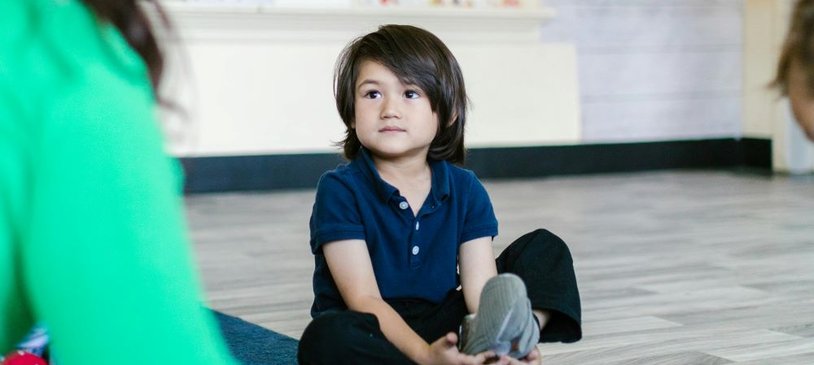The Rookery Children’s Centre in Perry Barr, Birmingham, has been implementing the First Words Together (FWT) programme since 2021, but sought permission to specifically apply the programme as an intervention tool for a special educational needs (SEND) group called Stepping Stones.
The FWT programme within the Stepping Stones group assists parents and caregivers of children with potential special educational needs (SEND) in addressing communication and language requirements. These children exhibit developmental gaps in learning but lack an official diagnosis or external agency support. Notably, they do not attend early years settings such as nurseries.
When delivering a FWT session for the Stepping Stones group, practitioners follow similar principles to the original model but with adaptations:
- Children with complex needs do not start on the carpet, as it was felt this wouldn’t benefit them. Instead, they freely engage in a range of indoor and outdoor activities, all demonstrating the five talking tips.
- Practitioners move around families, discussing previous tips and explaining the current strategy. They model the talking tip during play activities.
- The whole session lasts approximately 50-60 minutes, ending with an interactive story (using sensory experiences and Makaton) and a personalised goodbye song for each child.
Like a standard FWT programme, measuring success in the Stepping Stones group relies on parental feedback. Parents assess themselves against a set of criteria at the programme’s outset and again after session five. Additionally, practitioners monitor and record individual progress for each child, considering any targets set as part of their special educational needs.
Based on observations by the National Literacy Trust, practitioner feedback, and parent surveys, implementing the FWT programme to support children with both communication and language needs, as well as additional complex needs, was beneficial.
Even though these children were older than the recommended age of 0-2 years for the standard FWT programme, they gained from accessing the strategies provided by the FWT talking tips. This support also helped families address identified communication and language concerns, contributing to developmental progress.
